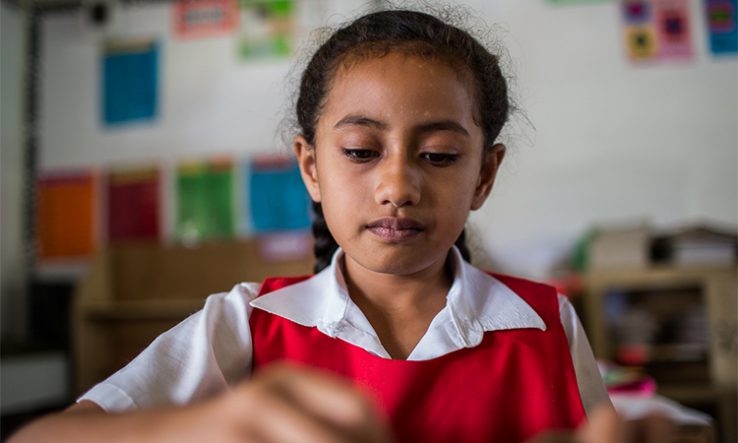
Image: Department of Foreign Affairs and Trade [CC BY 2.0], via Flickr
Massey aims to increase enrolment and retention of Pacific Islands students
Palatasa Havea, the inaugural dean of Pacific studies at Massey University, has called for a more culturally diverse approach to tertiary education in New Zealand.
“My vision is far more than just passing exams,” he told a pōwhiri (welcome ceremony) at the university to honour his appointment.
“I want our students to have a global view of their potential. The reality is the Pacific Islands are a goldmine in terms of intellectual properties, cultures and research. There are a lot of people overseas—top professors because they write about our stories—and that is because we ourselves don’t see the importance of our own work.”
Havea also stressed the importance of taking “a collective approach” to teaching Pacific Islands students—one that reflects their cultural experiences. “They work as a group. You win one, you win the rest,” he said.
“We want to build a culture of fun and hard work in a communal way. If you create that kind of culture for them, so that they walk in this door and have the willingness to learn, you know that would be really something.”
Havea’s role is part of the university’s new Office of Pasifika Student Success, which aims to increase enrolments and retention of students from Pacific Islands countries such as the Cook Islands, Fiji, Niue, Samoa and Tonga.
His plans include an education strategy that supports Pacific Islands cultural performance arts. He also wants to create more science and technology research scholarships and provide more support for distance education.
Havea is one of NZ’s leading food technologists and was previously a principal scientist with the dairy industry. He has published numerous research papers in international science journals and is an adviser to the NZ government on tertiary science education.
In his pōwhiri speech, Havea outlined his struggles with family poverty in Tonga and a colonial education system that offered little support for Pacific Islands students. He described repeatedly failing primary school grades and finally securing a job in Tonga with a factory that produced desiccated coconut products.
When he travelled to NZ in the 1980s to enrol at Massey in a food technology course, he was 26 years old and had “never seen a computer”.
“I did really badly when I started…I was told to go away, I was too dumb,” he told the Massey welcoming ceremony audience.
Havea recalled being in a computer laboratory and not knowing how to use a spreadsheet. He was told by one of the academics teaching the course that he “was not going to succeed and should leave”.
He persisted, was encouraged by mentors who saw his potential and went on to complete a PhD in food technology at Massey.